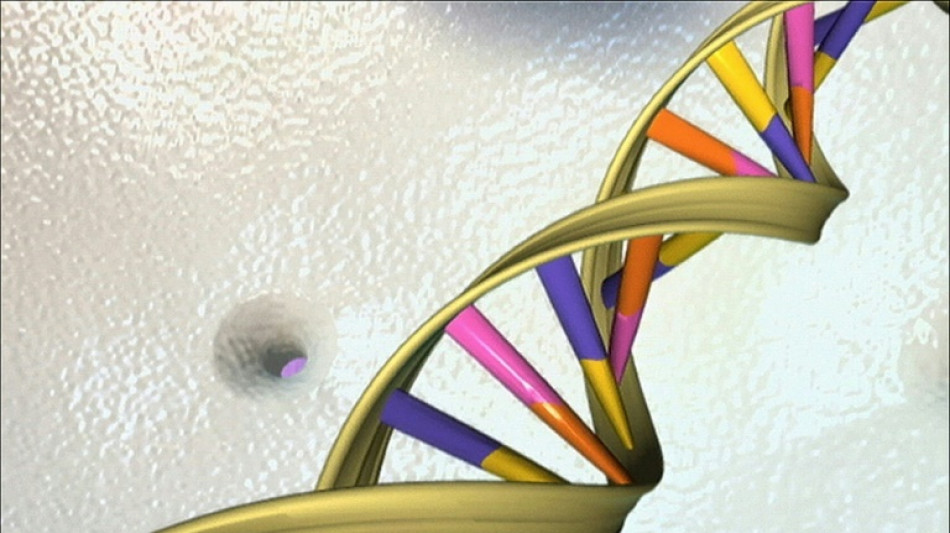
-
 Salah unaffected by Liverpool turmoil ahead of AFCON opener - Egypt coach
Salah unaffected by Liverpool turmoil ahead of AFCON opener - Egypt coach
-
Goggia eases her pain with World Cup super-G win as Vonn takes third

-
 Goggia wins World Cup super-G as Vonn takes third
Goggia wins World Cup super-G as Vonn takes third
-
Cambodia says Thai border clashes displace over half a million

-
 Kremlin denies three-way US-Ukraine-Russia talks in preparation
Kremlin denies three-way US-Ukraine-Russia talks in preparation
-
Williamson says 'series by series' call on New Zealand Test future

-
 Taiwan police rule out 'terrorism' in metro stabbing
Taiwan police rule out 'terrorism' in metro stabbing
-
Australia falls silent, lights candles for Bondi Beach shooting victims

-
 DR Congo's amputees bear scars of years of conflict
DR Congo's amputees bear scars of years of conflict
-
Venison butts beef off menus at UK venues

-
 Cummins, Lyon doubts for Melbourne after 'hugely satsfying' Ashes
Cummins, Lyon doubts for Melbourne after 'hugely satsfying' Ashes
-
'It sucks': Stokes vows England will bounce back after losing Ashes

-
 Australia probes security services after Bondi Beach attack
Australia probes security services after Bondi Beach attack
-
West Indies need 462 to win after Conway's historic century

-
 Thai border clashes displace over half a million in Cambodia
Thai border clashes displace over half a million in Cambodia
-
Australia beat England by 82 runs to win third Test and retain Ashes

-
 China's rare earths El Dorado gives strategic edge
China's rare earths El Dorado gives strategic edge
-
Japan footballer 'King Kazu' to play on at the age of 58

-
 New Zealand's Conway joins elite club with century, double ton in same Test
New Zealand's Conway joins elite club with century, double ton in same Test
-
Australian PM orders police, intelligence review after Bondi attack

-
 Durant shines as Rockets avenge Nuggets loss
Durant shines as Rockets avenge Nuggets loss
-
Pressure on Morocco to deliver as Africa Cup of Nations kicks off

-
 Australia remove Smith as England still need 126 to keep Ashes alive
Australia remove Smith as England still need 126 to keep Ashes alive
-
Myanmar mystics divine future after ill-augured election

-
 From the Andes to Darfur: Colombians lured to Sudan's killing fields
From the Andes to Darfur: Colombians lured to Sudan's killing fields
-
Eagles win division as Commanders clash descends into brawl

-
 US again seizes oil tanker off coast of Venezuela
US again seizes oil tanker off coast of Venezuela
-
New Zealand 35-0, lead by 190, after racing through West Indies tail

-
 West Indies 420 all out to trail New Zealand by 155
West Indies 420 all out to trail New Zealand by 155
-
Arteta tells leaders Arsenal to 'learn' while winning

-
 Honour to match idol Ronaldo's Real Madrid calendar year goal record: Mbappe
Honour to match idol Ronaldo's Real Madrid calendar year goal record: Mbappe
-
Dupont helps Toulouse bounce back in Top 14 after turbulent week

-
 Mbappe matches Ronaldo record as Real Madrid beat Sevilla
Mbappe matches Ronaldo record as Real Madrid beat Sevilla
-
Gyokeres ends drought to gift Arsenal top spot for Christmas

-
 Arsenal stay top despite Man City win, Liverpool beat nine-man Spurs
Arsenal stay top despite Man City win, Liverpool beat nine-man Spurs
-
US intercepts oil tanker off coast of Venezuela

-
 PSG cruise past fifth-tier Fontenay in French Cup
PSG cruise past fifth-tier Fontenay in French Cup
-
Isak injury leaves Slot counting cost of Liverpool win at Spurs

-
 Juve beat Roma to close in on Serie A leaders Inter
Juve beat Roma to close in on Serie A leaders Inter
-
US intercepts oil tanker off coast of Venezuela: US media

-
 Haaland sends Man City top, Liverpool beat nine-man Spurs
Haaland sends Man City top, Liverpool beat nine-man Spurs
-
Epstein victims, lawmakers criticize partial release and redactions

-
 Leverkusen beat Leipzig to move third in Bundesliga
Leverkusen beat Leipzig to move third in Bundesliga
-
Lakers guard Smart fined $35,000 for swearing at refs

-
 Liverpool sink nine-man Spurs but Isak limps off after rare goal
Liverpool sink nine-man Spurs but Isak limps off after rare goal
-
Guardiola urges Man City to 'improve' after dispatching West Ham

-
 Syria monitor says US strikes killed at least five IS members
Syria monitor says US strikes killed at least five IS members
-
Australia stops in silence for Bondi Beach shooting victims

-
 Olympic champion Joseph helps Perpignan to first Top 14 win despite red card
Olympic champion Joseph helps Perpignan to first Top 14 win despite red card
-
Zelensky says US mooted direct Ukraine-Russia talks on ending war


Google AI tool predicts danger of genetic mutations
Researchers at Google DeepMind, the tech giant's artificial intelligence arm, on Tuesday introduced a tool that predicts whether genetic mutations are likely to cause harm, a breakthrough that could help research into rare diseases.
The findings are "another step in recognising the impact that AI is having in the natural sciences," said Pushmeet Kohli, vice president for research at Google DeepMind.
The tool focuses on so-called "missense" mutations, where a single letter of the genetic code is affected.
A typical human has 9,000 such mutations throughout their genome; they can be harmless or cause diseases such as cystic fibrosis or cancer, or damage brain development.
To date, four million of these mutations have been observed in humans, but only two percent of them have been classified, either as disease-causing or benign.
In all, there are 71 million such possible mutations. The Google DeepMind tool, called AlphaMissense, reviewed these mutations and was able to predict 89 percent of them, with 90 percent accuracy.
A score was assigned to each mutation, indicating the risk of it causing disease (otherwise referred to as pathogenic).
The result: 57 percent were classified as probably benign, and 32 percent as probably pathogenic -- the remainder being uncertain.
The database was made public and available to scientists, and an accompanying study was published on Tuesday in the journal Science.
AlphaMissense demonstrates "superior performance" than previously available tools, wrote experts Joseph Marsh and Sarah Teichmann in an article also published in Science.
"We should emphasize that the predictions were never really trained or never really intended to be used for clinical diagnosis alone," said Jun Cheng of Google DeepMind.
"However, we do think that our predictions can potentially be helpful to increase the diagnosed rate of rare disease, and also potentially to help us find new disease-causing genes," Cheng added.
Indirectly, this could lead to the development of new treatments, the researchers said.
The tool was trained on the DNA of humans and closely-related primates, enabling it to recognize which genetic mutations are widespread.
Cheng said the training allowed the tool to input "millions of protein sequences and learns what a regular protein sequence looks like."
It then could identify a mutation and its potential for harm.
Cheng compared the process to learning a language.
"If we substitute a word from an English sentence, a person that is familiar with English can immediately see whether this word substitution will change the meaning of the sentence or not."
C.Garcia--AMWN



